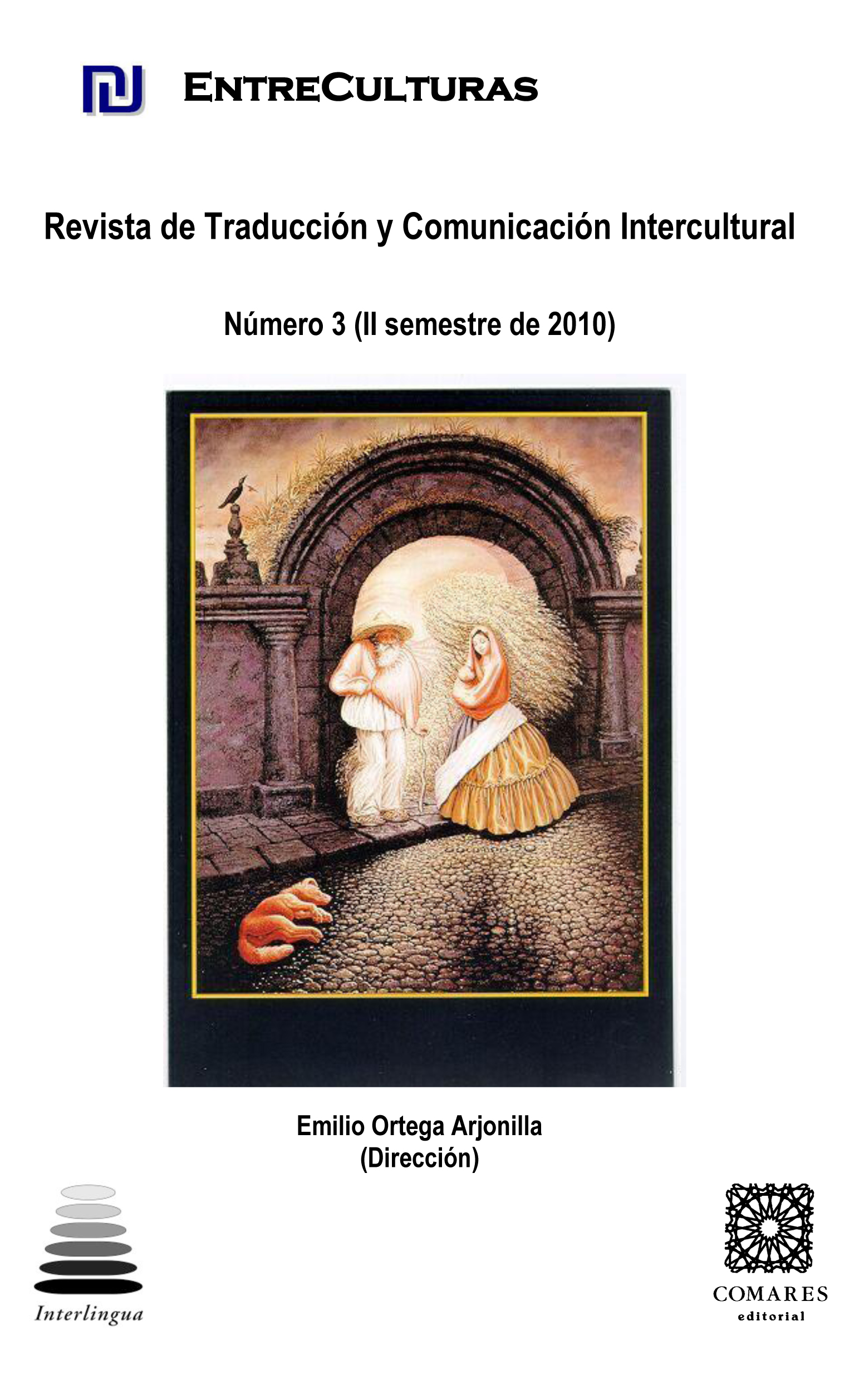LA INTERPRETACIÓN EN LA UNIÓN EUROPEA: PRÁCTICAS Y SALIDAS PROFESIONALES
DOI:
https://doi.org/10.24310/Entreculturasertci.vi3.11677Keywords:
Interpreting, international institutions, employment, traineeships, European UnionAbstract
International bodies hold conferences and meetings that are attended by people who speak different languages. Interpreters play a key role because interpreting is often the only way to allow communication among those people. This paper provides detailed information about the possibilities university graduates and undergraduate students in interpretation have in getting access to traineeships, grants, employment or competitions in the context of international organizations in which Spanish is an official language. We focus particularly on the institutions of the European Union which have their own interpreting service (European Commission, European Parliament, European Court of Justice). A series of links to Web sites of interest is also included.
Downloads
Metrics
References
EUROPEAN PERSONNEL SELECTION OFFICE [en línea]: http://europa.eu/epso/ [fecha de consulta 14 de diciembre de 2010]
IAMLADP [en línea]: http://www.iamladp.org/ [fecha de consulta: 14 de diciembre de 2010]
INTERNATIONAL STANDARD ORGANIZATION [en línea]: http://www.iso.org/iso/iso_catalogue/catalogue_tc/catalogue_detail.htm? csnumber=7587 [fecha de consulta: 14 de diciembre de 2010]
HINTS & DG INTERPRETATION (2010): Interpreting for the World. Bruselas, Comisión Europea [en línea]: http://www.iamladp.org/newsAVL.htm [fecha de consulta: 14 de diciembre de 2010]
MINISTERIO DE ASUNTOS EXTERIORES Y DE COOPERACIÓN (2005): ?Guía de oportunidades profesionales para traductores e intérpretes en organizaciones internacionales? [en línea]: http://www.maec.es/es/MenuPpal/Oportunidades/Informacion/GOPparaTraductoreseInterpretes/Documents/c840fc2b84a94035bb9731ab8f1567a3guiatradfinal.pdf [fecha de consulta: 14 de diciembre de 2010]
PARLAMENTO EUROPEO [en línea]: http://www.europarl.europa.eu/news/public/default_es.htm [fecha de consulta: 14 de diciembre de 2010]
TRIBUNAL DE JUSTICIA EUROPEO [en línea]: http://curia.europa.eu/jcms/jcms/Jo1_6308/ [fecha de consulta: 14 de diciembre de 2010]
UNIÓN EUROPEA [en línea]: http://europa.eu/index_es.htm [fecha de consulta: 14 de diciembre de 2010]
Downloads
Published
How to Cite
Issue
Section
License
All contents published in Entre culturas. Revista de traducción y comunicación intercultural are protected under the Creative Commons Attribution-NonCommercial-ShareAlike 4.0 International (CC BY-NC-SA 4.0) license. All about this license is available in the following link: <http://creativecommons.org/licenses/by-nc-sa/4.0>
Users can copy, use, redistribute, share and exhibit publicly as long as:
- The original source and authorship of the material are cited (Journal, Publisher and URL of the work).
- It is not used for comercial purposes.
- The existence of the license and its especifications are mentioned.
There are two sets of authors’ rights: moral and property rights. Moral rights are perpetual prerogatives, unrenounceable, not-transferable, unalienable, imprescriptible and inembargable. According to authors’ rights legislation, Entreculturas. Revista de traducción y comunicación intercultural recognizes and respects authors moral rights, as well as the ownership of property rights, which will be transferred to University of Malaga in open access. The property rights are referred to the benefits that are gained by the use or the dissemination of works. Entreculturas. Revista de traducción y comunicación intercultural is published in an open access form and it is exclusively licenced by any means for doing or authorising distribution, dissemination, reproduction, , adaptation, translation or arrangement of works.
Authors are responsable for obtaining the necessary permission to use copyrighted images.





7.png)
